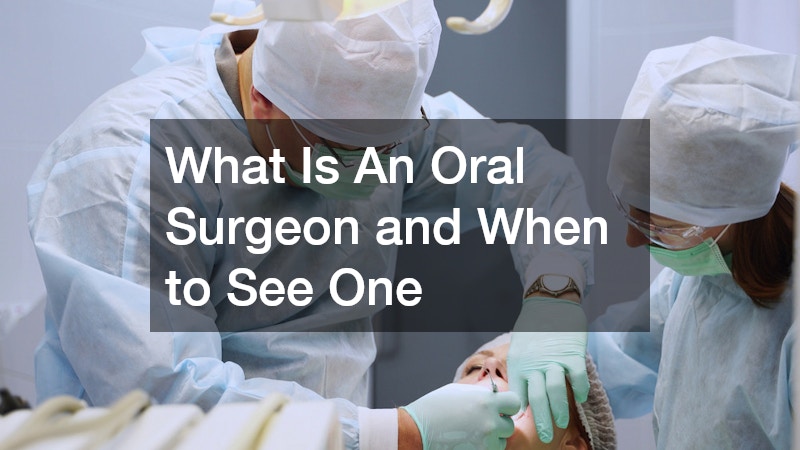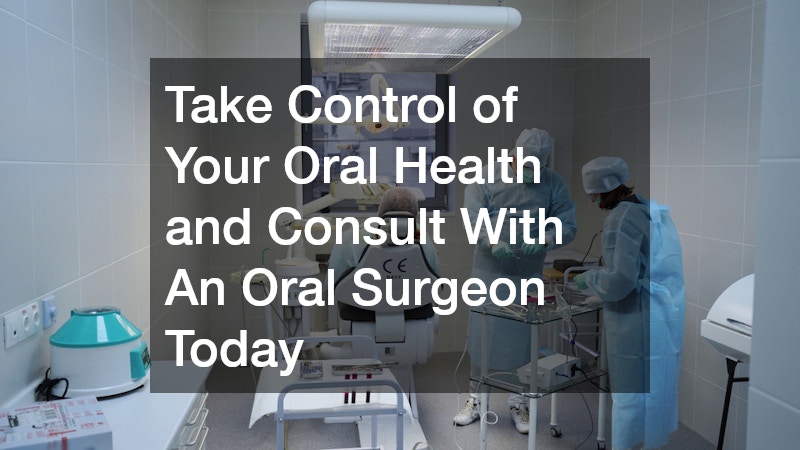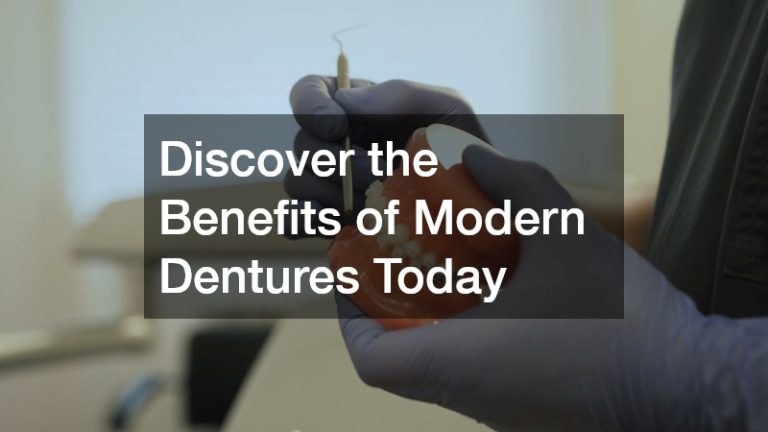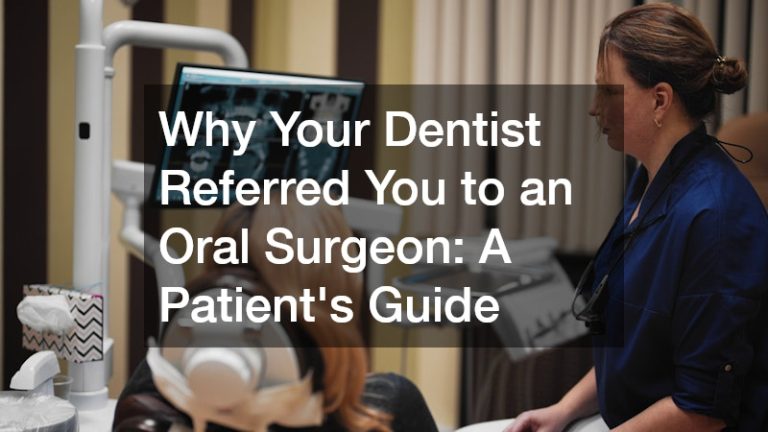What is An Oral Surgeon and When to See One

Understanding the role of an oral surgeon can provide significant clarity in managing your oral health. Oral surgeons possess specialized skills essential for treating a variety of complex dental issues that go beyond the capabilities of a general dentist. This article will explore who oral surgeons are, the common procedures they perform, the signs indicating the necessity to consult one, and tips for choosing the right professional for your needs.
What Is an Oral Surgeon?
Definition and Scope of Practice
An oral surgeon, also known as an oral and maxillofacial surgeon, is a dental specialist who focuses on surgeries of the mouth, jaw, and face. Unlike general dentists, oral surgeons undergo extensive training in surgical techniques and anesthesia. Their practice encompasses a wide range of procedures, including tooth extractions, corrective jaw surgery, and management of facial injuries.
Education and Training Requirements
Becoming an oral surgeon requires a significant educational commitment. After completing a dental degree, aspiring oral surgeons typically engage in a four- to six-year residency program where they receive specialized training in surgery and anesthesia. This extensive training ensures they are well-equipped to handle intricate surgical procedures and manage various complications that may arise.
What Conditions Do Oral Surgeons Treat?
Dental and Facial Injuries
Oral surgeons frequently address dental and facial injuries resulting from accidents or trauma. These injuries can range from simple tooth fractures to complex maxillofacial injuries requiring surgical intervention. Their expertise allows them to repair facial fractures and restore functionality and aesthetics.
Jaw Realignment and TMJ Disorders
Temporomandibular joint (TMJ) disorders are another condition oral surgeons manage. Jaw misalignment can lead to discomfort and functional difficulties. Oral surgeons can perform corrective surgeries to realign the jaw, alleviate pain, and restore proper functioning.
Cysts, Tumors, and Oral Pathologies
Oral surgeons are trained to diagnose and treat various oral pathologies, including cysts and tumors. They often perform biopsies to determine the nature of these growths and develop appropriate treatment plans, which may include surgical removal.
Impacted Teeth and Wisdom Teeth Removal
One of the most common procedures performed by oral surgeons is the removal of impacted teeth, particularly wisdom teeth. These teeth can become trapped in the jaw or fail to emerge properly, leading to pain, infection, or other dental complications. Oral surgeons utilize advanced techniques to remove these teeth safely and effectively.
When Should You See an Oral Surgeon?
Referral from General Dentist
A general dentist typically refers patients to an oral surgeon when a condition requires specialized care. If your dentist identifies an issue that may necessitate surgery—such as severe tooth decay, jaw misalignment, or impacted teeth—they will recommend a consultation with an oral surgeon.
Signs and Symptoms Requiring Oral Surgery
Understanding the signs that indicate the need for an oral surgical consultation is crucial. Symptoms like persistent pain, difficulty chewing, or noticeable swelling in the mouth or jaw warrant assessment by an oral surgeon. Additionally, if you experience trauma to the mouth or facial area, an immediate consultation is advisable.
Preventive Assessments and Early Intervention
Early evaluations can prevent more severe complications. Routine dental check-ups are essential, as they may reveal issues that could benefit from early intervention by an oral surgeon. Identifying problems like impacted teeth or developing jaw disorders early on can lead to better outcomes.
Emergency Situations
Certain dental emergencies require immediate surgical attention. If dental trauma results in significant facial injuries, or if infections or severe pain arise suddenly, seeking emergency care from an oral surgeon may be necessary.
What Are Common Procedures Performed by Oral Surgeons?
Extractions and Dental Implants
Tooth extractions are among the most common procedures performed by oral surgeons. Additionally, they are skilled in placing dental implants, which are artificial tooth roots used to support replacement teeth. Successful implant placement requires precision and expertise, which oral surgeons provide.
Orthognathic and Reconstructive Surgery
Oral surgeons also perform complex surgeries like orthognathic surgery, aimed at correcting jaw discrepancies and improving facial aesthetics. These procedures can significantly enhance a patient’s ability to chew, speak, and achieve proper facial symmetry.
Treatment of Cleft Lip and Palate
Oral surgeons play a vital role in corrective surgery for congenital conditions like cleft lip and palate. These surgeries are crucial for improving functionality and aesthetics, allowing individuals to lead healthier lives.
Biopsies and Oral Cancer Management
Oral surgeons are involved in diagnosing and managing oral cancers and lesions. They perform biopsies to identify cancerous tissues and develop appropriate treatment strategies, which may include surgical removal of tumors.
How to Choose the Right Oral Surgeon?
Checking Credentials and Experience
When selecting an oral surgeon, it’s essential to research their credentials, experience, and areas of specialization. Look for board certification and any additional training they may have in specific procedures relevant to your needs.
Consultations and Second Opinions
Schedule consultations to discuss your condition and treatment options. This initial meeting allows you to gauge the surgeon’s communication style and approach to patient care. Seeking a second opinion is also advisable, especially for complex procedures.
Insurance and Financial Considerations
Understanding your insurance coverage for oral surgery procedures is vital. Discussing costs upfront can help you manage any financial considerations associated with treatment.
Patient Reviews and Testimonials
Lastly, consider patient reviews and testimonials. First-hand experiences from previous patients can provide valuable insights into the quality of care and the surgeon’s approach to treatment.
Oral surgeons play a critical role in comprehensive oral health care, addressing complex conditions that extend beyond general dentistry. Understanding when to seek their expertise and how to choose a qualified surgeon can lead to better oral health outcomes. Making informed decisions can significantly enhance your overall well-being and confidence in your dental health.






